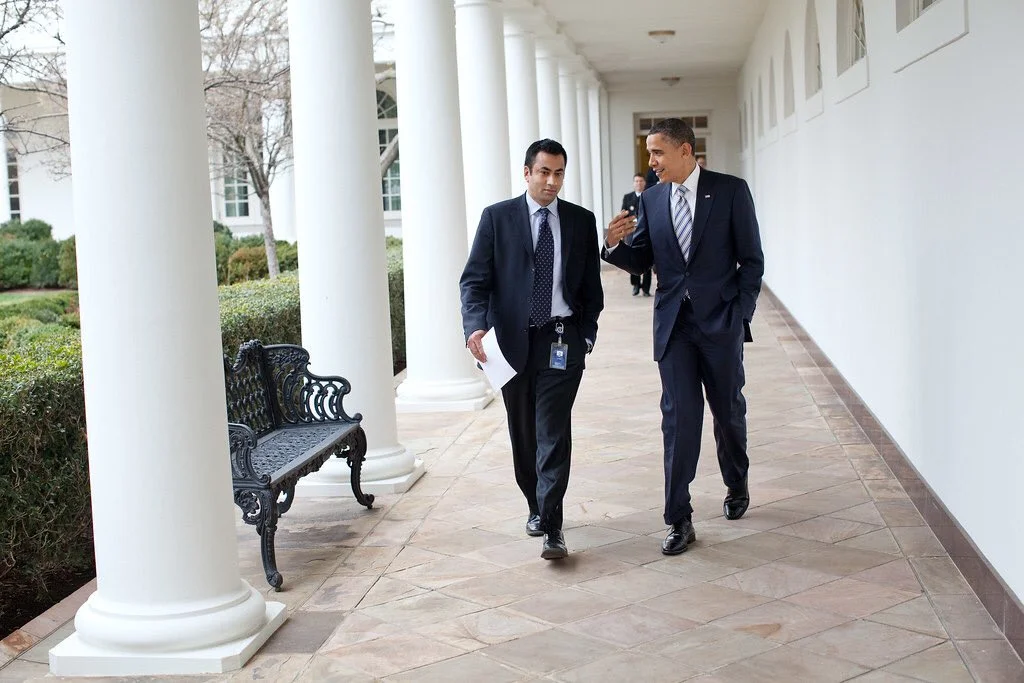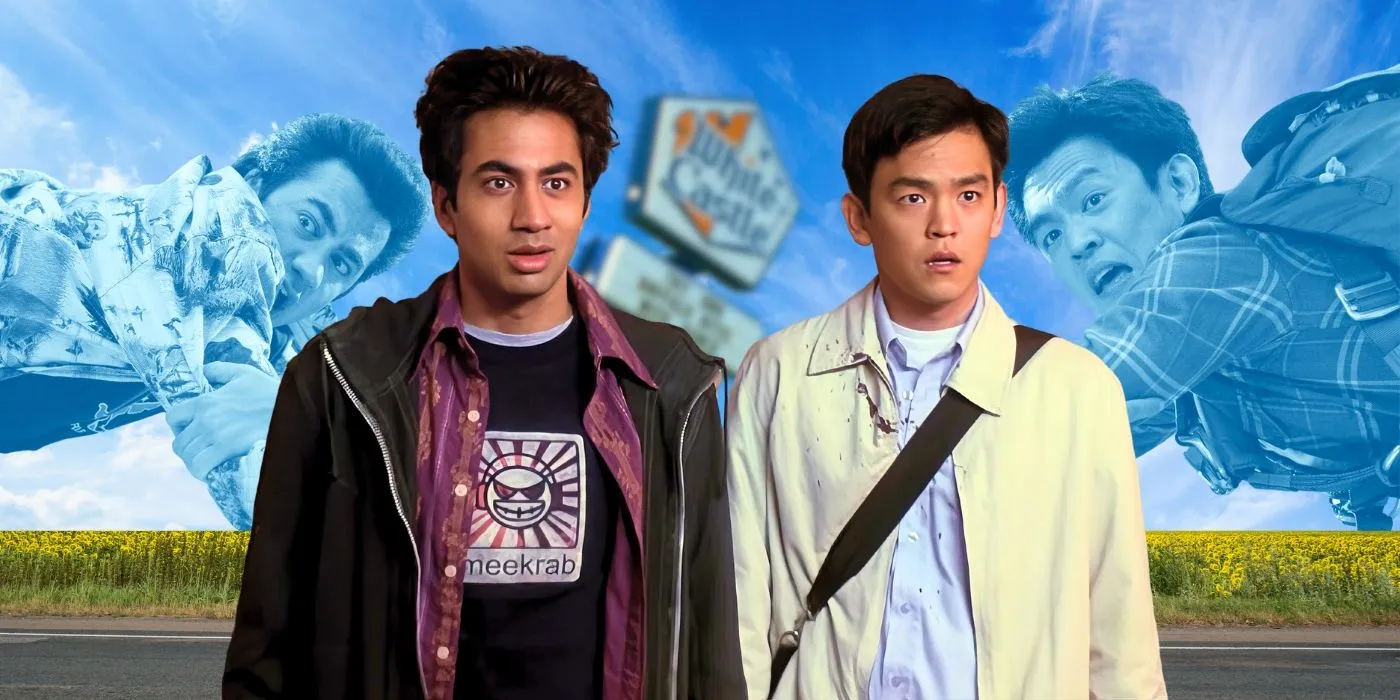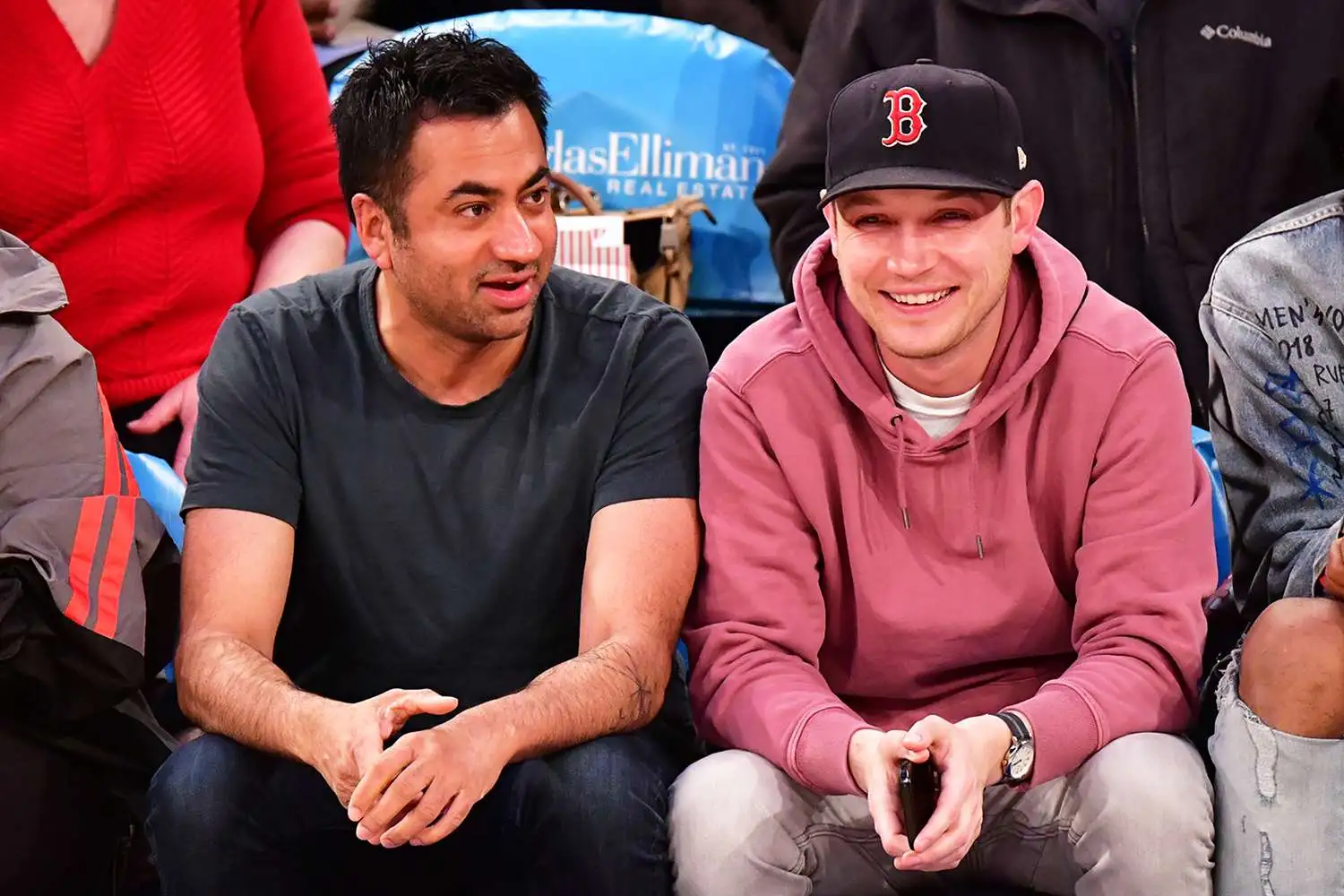(November 4, 2024) Kal Penn remembers the day he changed his name. He was just starting out as an actor, a college student sending headshots to casting agents and getting silence in return. A friend suggested a simple switch: go by “Kal Penn” instead of Kalpen Modi, and he might get a response. He laughed it off, but curiosity got the better of him. Within a week of mailing out headshots with his new name, he had auditions lined up. “It was surreal,” he recalls. “Just changing my name made me visible to them.”
Known for his role as Kumar in the Harold & Kumar series, he brought one of the first complex South Asian American characters to mainstream comedy, changing the way audiences saw Asian American leads on screen. Penn’s impact didn’t stop at comedy; over two decades, he took on roles in films like The Namesake and Designated Survivor, broadening the representation of South Asians in American film and television. The Global Indian left Hollywood in 2009 to join the Obama administration, surprising many who couldn’t understand why he’d trade acting for politics. For him, it was about public service—a value he grew up with. In his new role, Penn worked on outreach to Asian American, Pacific Islander, and arts communities. Though seen as “the actor” in D.C., adviser Valerie Jarrett reminded him he was there for his unique perspective, not his fame.

Kal Penn with former US President Barack Obama
Early Life
Penn grew up in Montclair, New Jersey, the son of Indian immigrants who had high hopes for his future. His father arrived in the United States with a handful of dollars, working to provide stability for his family. For them, a career in medicine or engineering would mean Penn had “made it.” “Acting was something they just couldn’t see as stable,” he says. But Penn was drawn to theater early on, performing in school plays, knowing that his family’s support came with concerns. He took this passion to UCLA, majoring in sociology and theater, where he faced the realities of trying to break into Hollywood as a South Asian actor.
“Every role I’d see was a stereotype,” he recalls, thinking back to his first auditions. He’d show up, only to find that the roles he was reading for were cab drivers, tech support guys, or nameless “foreigners” who barely had lines. “There was this expectation that I’d put on an accent, act like a caricature,” he says. The industry wasn’t interested in casting him as a leading man, but Penn kept pushing, convinced he could prove them wrong.
Hollywood calling
In 2004, Penn got his breakthrough with *Harold & Kumar Go to White Castle*, a comedy about two stoner friends on a surreal quest for fast food. The character of Kumar was unlike anything he’d seen—a South Asian lead who was funny, flawed, and just a regular guy. “I read the script and thought, ‘This is different,’” he says. “Kumar wasn’t a punchline, he was the guy with a story.” The film became an unexpected hit, and audiences connected with Kumar, especially young people who rarely saw someone who looked like them in a role like this. For Penn, the role was a revelation, proof that there was space for South Asians as more than just stereotypes.
But Harold & Kumar didn’t transform Hollywood overnight. “People assumed that movie would open all the doors,” he says, “but I kept getting offers for the same kind of parts.” Instead of settling, Penn sought roles that challenged the industry’s narrow view of him. One of these was The Namesake, based on Jhumpa Lahiri’s novel. Directed by Mira Nair, the film follows Gogol, a young man straddling his Indian heritage and his American identity. “It was the most rewarding role I’d ever had,” Penn says, noting that it gave him the chance to tell a story that felt real. “I could relate to Gogol on so many levels—it was more than just acting.”

Actor Kal Penn in a still from Harold and Kumar
Politics
In 2007, while filming the TV drama House, Penn’s life took an unexpected turn. A friend and co-star, Olivia Wilde, invited him to a campaign event for Barack Obama. Penn went, curious but not expecting much. Listening to Obama, though, something shifted. “He was talking about change in a way that felt real,” Penn recalls. Inspired, he joined the campaign as a volunteer, traveling to Iowa to knock on doors and connect with voters, many of whom were surprised to see a familiar face at their doorstep.
In 2009, after Obama’s victory, Kal Penn made a surprising choice: he stepped away from acting to join the administration as an associate director in the White House Office of Public Engagement. “People thought I was nuts,” he says. “They couldn’t understand why I’d leave Hollywood for Washington.” For Penn, though, it wasn’t about abandoning one career for another; it was about public service, something he’d grown up hearing about in his family. “My family didn’t fight for opportunities just so I could settle for something easy,” he says.
In Washington, Penn focused on outreach to Asian Americans, Pacific Islanders, and the arts community. But he also faced a new kind of challenge. “In Hollywood, I was typecast as the ‘Indian guy,’” he says. “In D.C., I was ‘the actor.’” He remembers confiding in senior adviser Valerie Jarrett about his concerns. She reassured him, telling him, “You’re here because of what you bring, not because of what you’ve done on screen.” Jarrett’s support helped him lean into his role, connecting with communities across the country. “This wasn’t about being recognized—it was about doing the work,” he says.
His two-year tenure in the White House ended in 2011, but the experience left a lasting impact on him. “Being part of something meaningful was a new feeling for me,” he says. After returning to Hollywood, Penn found that his time in Washington had broadened his sense of purpose. “It gave me a different perspective on what mattered,” he reflects.
Personal Life

Kal with his partner, Josh
In 2021, Penn published You Can’t Be Serious=, a memoir that opened a new window into his life, particularly his long-term relationship with his partner, Josh. For over a decade, he’d kept their relationship private. “Josh isn’t into the spotlight, and I respected that,” he explains. But writing the memoir felt like a moment to be candid. “I wanted to show up fully as myself,” he says, adding that the response from readers was overwhelmingly supportive.
For Kal Penn, opening up about his personal life wasn’t about making a statement; it was about authenticity. “I knew that sharing my story could make others feel seen,” he says. For years, Penn had been a visible figure in Hollywood, but now he was bringing every part of his identity into the conversation.
Legacy
Today, Kal Penn stands as a figure who has pushed past the limits of Hollywood and Washington, showing that it’s possible to create space for more diverse voices. “I’ve learned you don’t have to be just one thing,” he says. For him, that truth has shaped a career that defies easy categorization. As he continues to work in Hollywood and beyond, he’s focused on telling stories that matter, creating room for others to tell theirs.
- Follow actor Kal Penn on Instagram.


